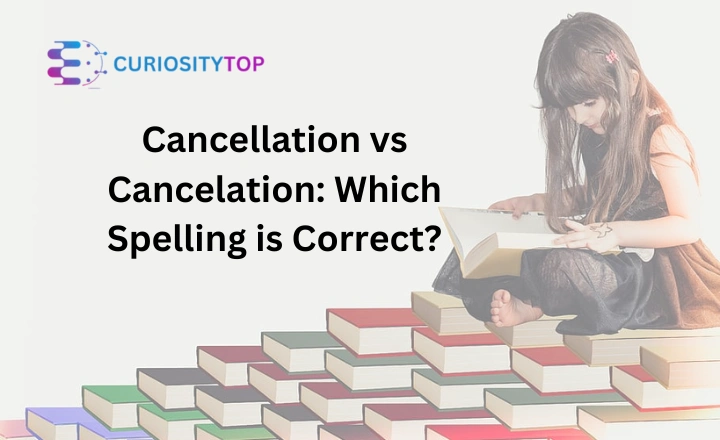Capital vs Capitol: What is the Difference?
Capital vs capitol shape our understanding of government, finance, and city administration. As a professional writer specializing in language and terminology, I want to share my insights about these commonly confused words. The distinction between these terms is essential in discussions about government, legislation, and civic matters.
What is the difference between the Capitol and the capital?

The core distinction centers on function and physicality. The capital is the primary city where government operations happen, while a capitol represents the specific building where lawmakers create legislation. This difference impacts everything from tourism to government operations.
Key Differences Table:
| Feature | Capital | Capitol |
| Primary Role | City/Administrative Center | Legislative Building |
| Scope | Entire City | Specific Structure |
| Examples | Washington D.C., London | U.S. Capitol, State Capitol buildings |
| Functions | Government operations, commerce | Lawmaking, legislative meetings |
Capital vs Capitol: How to Choose the Right Word

The choice between these terms requires better understanding their specific applications. Through my research and writing experience, I’ve developed a straightforward approach to using these terms correctly:
Capital Usage:
- Cities of government
- Financial resources
- Important matters
- Letter cases
Capitol Usage:
- Legislative buildings
- Meeting places for Congress
- Government structure references
The Origin of Capital or Capitol
Both terms trace their roots to ancient Rome’s Capitoline Hill. The Temple of Jupiter Capitolinus stood as Rome’s central religious structure, giving birth to our modern term “capitol.” The word “capital” evolved from the same Latin root but expanded to include broader meanings related to importance and priority.
Historical Evolution Table:
| Time Period | Capital Development | Capitol Development |
| Ancient Rome | Meant “head” or “chief” | Referred to Capitoline Hill |
| Middle Ages | Expanded to include wealth | Maintained building focus |
| Modern Era | Multiple meanings evolved | Specifically government buildings |
What Does ‘Capitol’ Mean?
A capitol represents more than just a building – it symbolizes democratic governance and legislative authority. State capitols across America showcase architectural grandeur while serving practical governmental functions. The U.S. Capitol in Washington, D.C. is the most famous example of hosting congressional sessions and symbolic national events.
Primary Capitol Functions:
- Legislative sessions
- Committee meetings
- Political ceremonies
- Historical preservation
- Public tours and education
How to Use ‘Capitol’ in a Sentence?
Proper usage enhances communication clarity:
- Senators debate important bills in the capitol chamber
- Our state capitol underwent renovation last year
- Security measures protect the capitol grounds
- The historic capitol features impressive architecture
- International schools singapore groups often tour the capitol building
What Does ‘Capital’ Mean?
Capital carries multiple significant meanings across various contexts:
Government Context:
- Administrative center
- Seat of power
- Regional authority
Financial Context:
- Investment resources
- Business assets
- Economic strength
Linguistic Context:
- Uppercase letters
- Written emphasis
- Grammatical rules
How to Use ‘Capital’ in a Sentence?
Examples across different contexts:
- Austin serves as the capital of Texas
- Businesses need capital for growth
- Names begin with capital letters
- The project requires significant capital investment
- Many state capitals feature historic districts
Usage Examples Table:
| Context | Example Sentence | Type of Usage |
| Government | “The capital city hosts diplomatic events” | Geographic |
| Finance | “We raised capital through investors” | Economic |
| Writing | “Use a capital letter here” | Grammatical |
Capital as a noun
As a noun, capital plays diverse roles in our language:
Geographic Application:
- Designates primary cities
- Marks administrative centers
- Identifies government locations
Financial Application:
- Represents wealth
- Indicates investment resources
- Describes business assets
Grammatical Application:
- Identifies uppercase letters
- Marks sentence beginnings
- Shows proper nouns
Capital as an adjective
The adjectival use of capital adds depth to various descriptions:
Importance:
- Capital importance
- Primary significance
- Critical nature
Financial Aspects:
- Capital gains
- Capital investments
- Capital markets
Legal Context:
- Capital punishment
- Capital crimes
- Capital cases
Capitol is a noun
The term capitol maintains a specific focus:
Physical Structures:
- Legislative buildings
- Government chambers
- Historical monuments
Administrative Areas:
- Capitol complexes
- Capitol grounds
- Capitol offices
Governmental Functions:
- Legislative sessions
- Political meetings
- Official ceremonies
Capitol as an adjective
Though limited, capitol serves specific descriptive purposes:
Building References:
- Capitol building
- Capitol architecture
- Capitol design
Ground Descriptions:
- Capitol grounds
- Capitol area
- Capitol complex
Security Aspects:
- Capitol police
- Capitol security
- Capitol protection
Implementation in Daily Usage:
- Government Operations
- Capitals host city-wide administration
- Capitols focus on legislation
- Both support democratic functions
- Public Access
- Capitals offer broad civic services
- Capitols provide focused government access
- Both serve public interests
- Historical Significance
- Capitals preserve regional history
- Capitols maintain legislative records
- Both contribute to national heritage
- Educational Value
- Capitals teach civic structure
- Capitols demonstrate governance
- Both offer learning opportunities
- Economic Impact
- Capitals drive regional economics
- Capitols influence local business
- Both create employment opportunities
Practical Applications:
Writing and Communication:
- Use “capital” for broader contexts
- Choose “capitol” for specific buildings
- Maintain consistency in usage
Government Documents:
- Reference capitals for administrative matters
- Cite capitols for legislative issues
- Apply appropriate terminology
Business Communications:
- Discuss capital in financial terms
- Reference capitol for government interaction
- Distinguish between contexts
Educational Materials:
- Teach capital city geography
- Explain capitol building functions
- Clarify usage differences
Media Coverage:
- Report on capital city events
- Cover capitol legislative actions
- Maintain accurate terminology
Common Misconceptions:
- Interchangeable Usage
- Each term has specific applications
- Context determines the correct choice
- Precision matters in communication
- Geographic Confusion
- Capitals encompass entire cities
- Capitols represent specific locations
- Understanding improves accuracy
- Financial Misunderstanding
- Capital relates to money and assets
- Capitol never refers to finances
- Clear distinction exists
- Grammatical Errors
- Capital letters follow particular rules
- Capitol maintains consistent spelling
- Usage patterns matter
Future Considerations:
- Digital Age Impact
- Virtual capital services expand
- Capitol access increases
- Technology shapes both concepts
- Educational Needs
- Understanding grows more important
- Clear distinctions matter more
- Learning resources expand
- Global Context
- International capitals gain importance
- Capitol concepts spread globally
- Terms maintain relevance
You can also read about more Confused Words here.
Blank Is to Blank as Blank Is to Blank
Is it Witness’ or Witness’s or Witness?
Conclusion
After years of studying and writing about these terms, I can confidently say that understanding the difference between capital and capitol enhances both professional writing and everyday communication.
The key lies in remembering that capitol refers specifically to buildings, while capital serves multiple purposes in our language. This knowledge proves invaluable for anyone writing about government, finance, or civic matters.
When in doubt, think of the ‘o’ in Capitol as representing the dome of the building where lawmakers meet.
FAQs
Is London the capital or capitol?
London is the capital city of England and the United Kingdom. “Capitol” refers to a building where a legislature meets, while “capital” is the primary city of a country or region.
Is it capital or capitol money?
The correct term is “capital” when referring to money or financial assets. “Capitol” is never used in financial contexts – it relates only to government buildings.
Why is capital called capitol?
They’re different words – “capitol” comes from the ancient Roman Capitoline Hill where the Temple of Jupiter stood. It’s not related to “capital,” which derives from the Latin “capitalis,” meaning “of the head” or “chief.”







